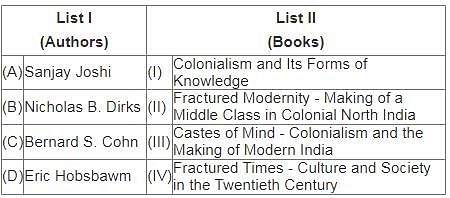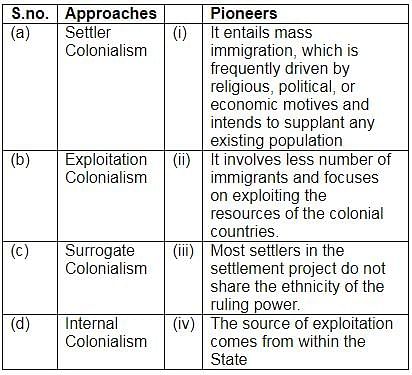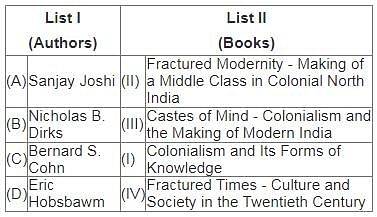Test: Colonialism and its approaches - UGC NET MCQ
10 Questions MCQ Test - Test: Colonialism and its approaches
Which of the following is not one of the three forms violence identified by Post-Colonialism?
Which of the following novels is authored by EM Forster?
| 1 Crore+ students have signed up on EduRev. Have you? Download the App |
Given below are two statements:
Statement I: Decolonization is essentially the undoing of Colonialism
Statement II: Many nations were no longer able to contribute to the upkeep of colonial administration after the Second World War due to a lack of financial resources.
Choose the correct option:
Revolutionary violence is not just cathartic but it also allows the colonial subjects to recreate themselves". Whose statement is this?
Match List I with List II

Choose the correct answer from the options given below:
Choose the main trends of Mercantilism :
i. Efforts to raise exports.
ii. Emphasis on the net inflow of bullions.
iii. High custom rates.
iv. Set up of joint stock companies.
Which of the above statements are correct ?
Statement I: Civilisation and subalterns' perspective studies society from the same point of view.
Statement II: NK Bose and David Hardiman both are proponents of the Indological perspective.
According to Habermas:
1. In the modern world the life world has been colonized by the system world
2. The system world is the everyday world that we share with others
Match List I with List II and choose the correct answer from the code given below:





















